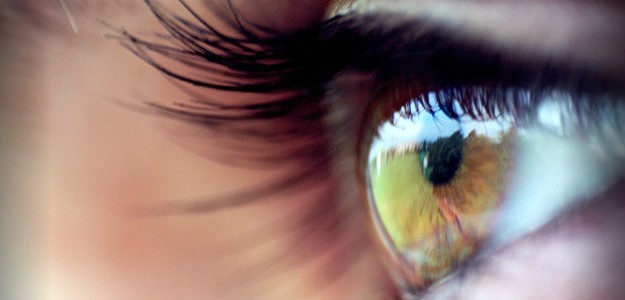There’s a scene near the beginning of the movie, Sherlock Holmes (2009 with Robert Downey Jr and Jude Law), where Holmes and Watson have thwarted an occult-like ritual led by the evil Lord Blackwood. As Watson moves in to grab Blackwood, Holmes abruptly stops him. Holmes then proceeds to point to a long, transparent needle protruding from Blackwood designed to pierce Watson when he got close.
Watson is relieved and amazed. “How did you even see that?”
To which Holmes replies, “Because I was looking for it.”
One of the things that turns the ordinary into the extraordinary is having an eye for detail.

photo credit: Michele Catania via photopin cc
It’s in the details that you can find ways to be creative. Sometimes that little extra touch can make a huge difference on an entire event.
I just returned from a leadership conference with my newly elected student leaders. While we were at the conference it became evident that a lot of time and effort had been put into the details. From the moment we arrived at the venue, there were special projects, activities, mementos, and tools all designed and aligned to create an amazing experience. For example…
- We heard from a keynote speaker, but were also given a copy of his latest book.
- We didn’t just receive registration materials when we arrived, we were immersed in the culture of the conference.
- The activities weren’t meant to keep us busy, they were constructed to help us build relationships.
- Every item we received had a message behind it that explained its purpose.
- When we had a meaningful leadership exercise, we took the time to debrief (best debrief ever!)
- Our students didn’t simply experience an event, they were intentionally equipped and educated for their student leadership year.
I know a lot of us struggle with having an eye for detail. We may be too busy to spend time to do the little bit extra. We may think we’re idea people and not detail people. But everyone can improve in this area.
Here are three ways you can develop your ability to improve your own eye for detail:
1. Slow down
Most student leaders quickly find themselves moving from event to event. When this happens, we lose the opportunity to be intentional and find ourselves simply doing whatever’s necessary to get the job done. Your best moments for creativity and identifying little ways you can enhance your program or event will occur weeks, maybe months, before it happens. While some people are good at flying by the seat of their pants, you must realize that you have a lot less options the night before something is supposed to happen.
When you slow down, you create space for intentionality.
2. Look for beauty
We are so inundated with information. This often affects how we plan. We find ourselves working hard on what, where, and when. But how and why are where the beauty is. These are the things that turn an event into an experience. Take time to think about how you want this event to feel. Talk about why this event is important in the midst of all of the other options. These types of conversations will help you to be creative. They will lead to small improvements that make a huge impact on the activity.
When you look for beauty, you connect with others on a deeper level.
3. Consider all your senses
Developing an eye for detail takes more than your eyes. It also takes your ears, your nose, your touch, and your taste buds. Maybe you need to close your eyes to be able to recognize details you may have missed when your eyes were open. Don’t believe me? Have you ever walked by a Cinnabon when they’re pulling fresh, hot cinnamon rolls out of the oven? What if people showed up at your next event and you were frying up some bacon (love that smell)? I think girls get this idea better than guys (at least this guy). If that’s the case, get some people on your team whose main responsibility is to think about the aesthetics of your event or activity.
When you consider all of your senses, you craft an event that’s more inclusive.
Remember, don’t wait until the night before an event to start thinking about little details. Make that part of your planning well ahead of time. Because that little extra touch can make a huge difference on an entire event.
Leave a comment: What other ideas would you offer to develop an eye for detail?
Share this Post
